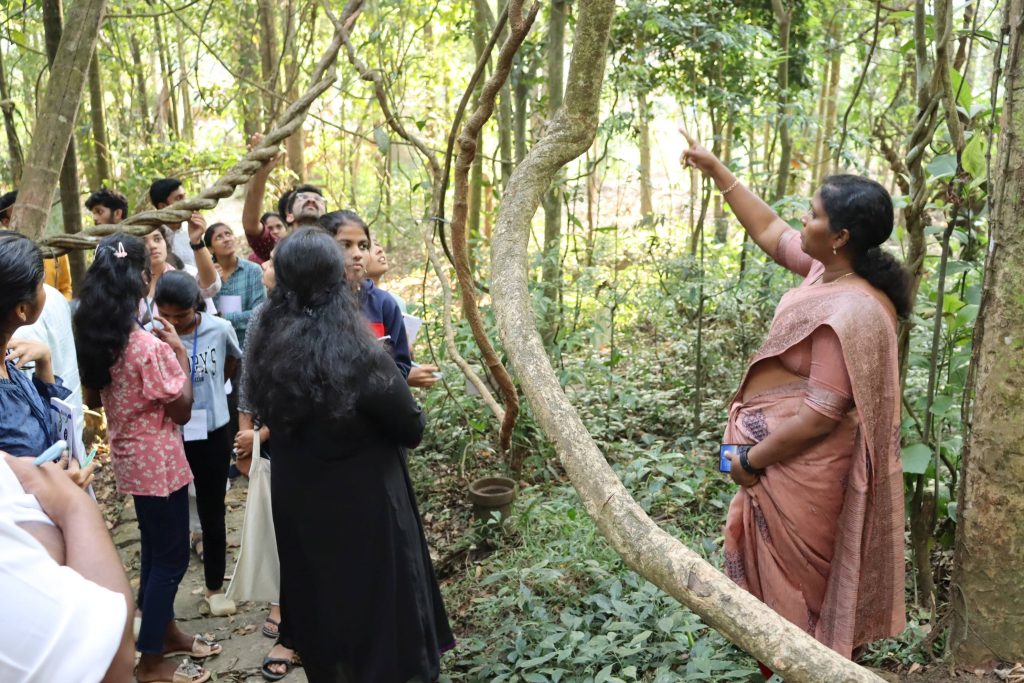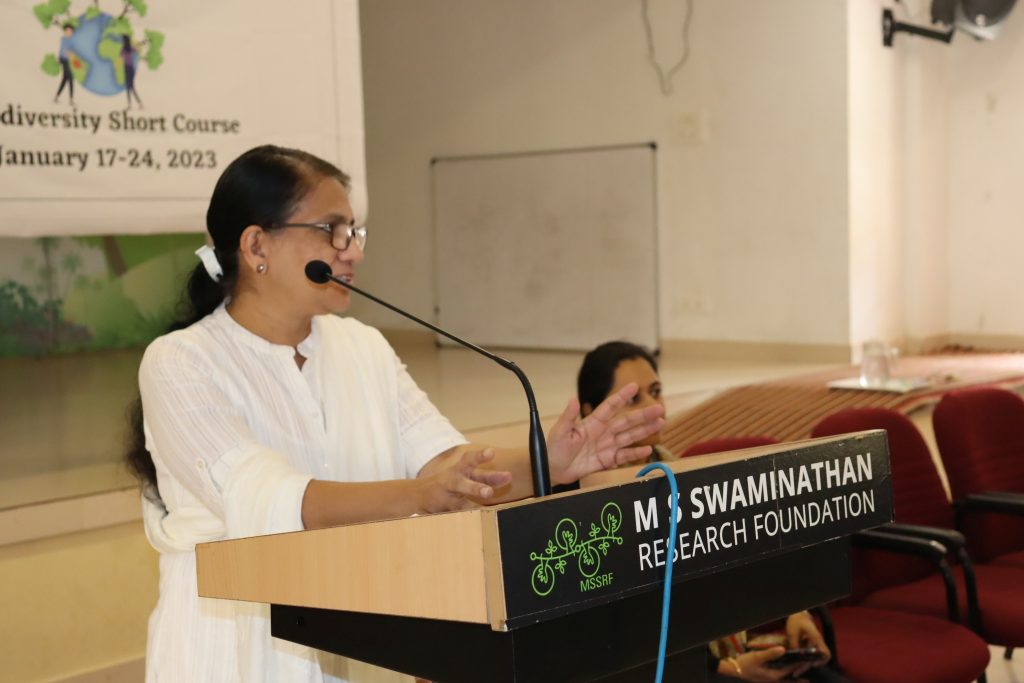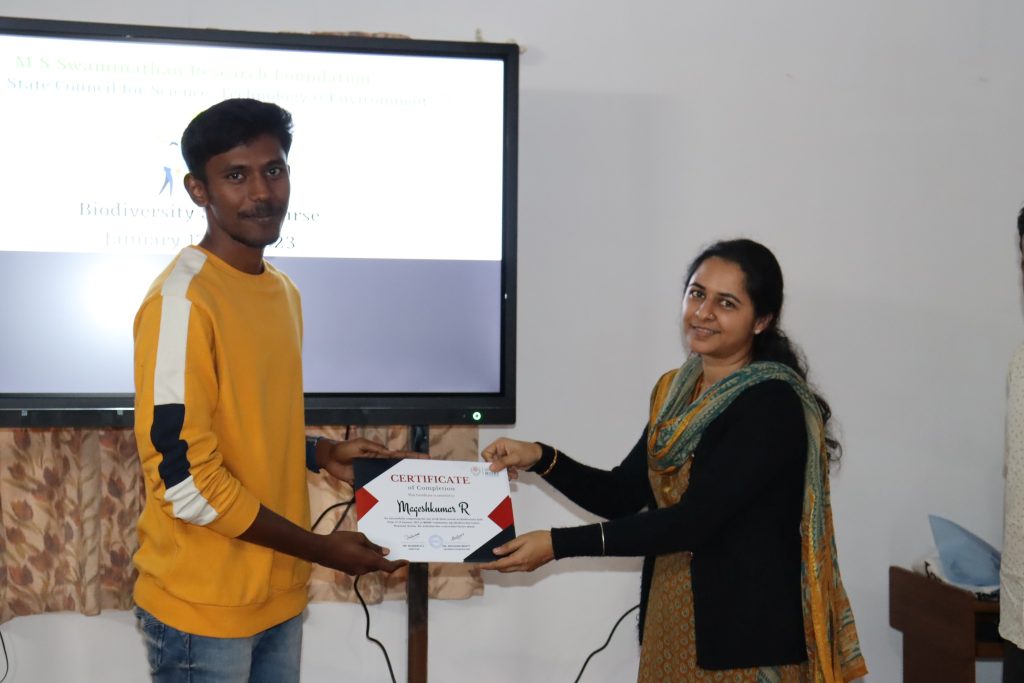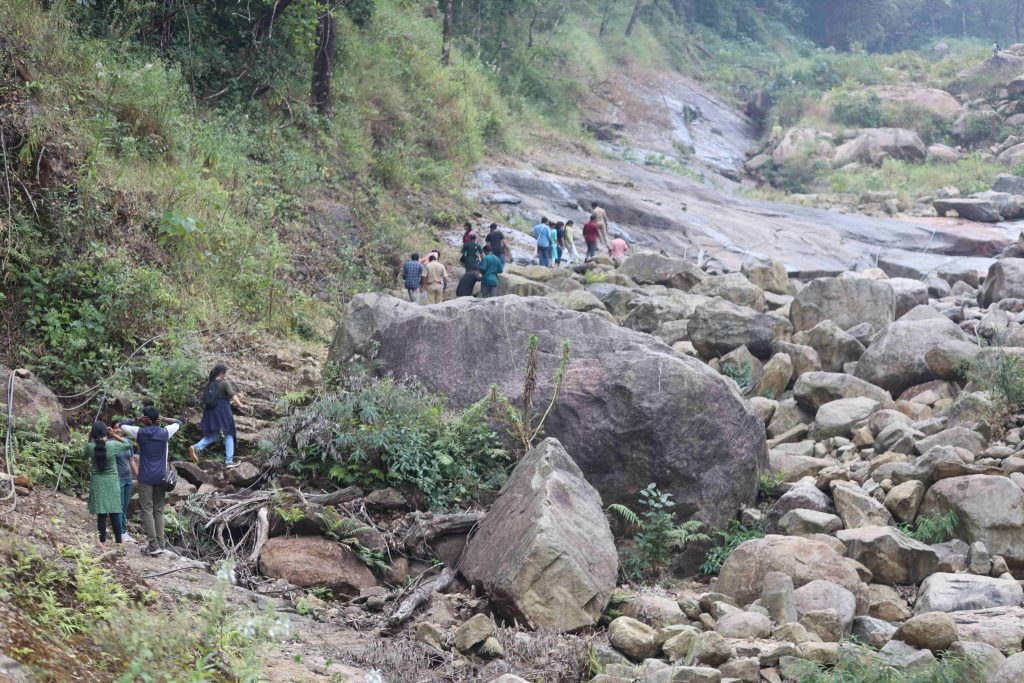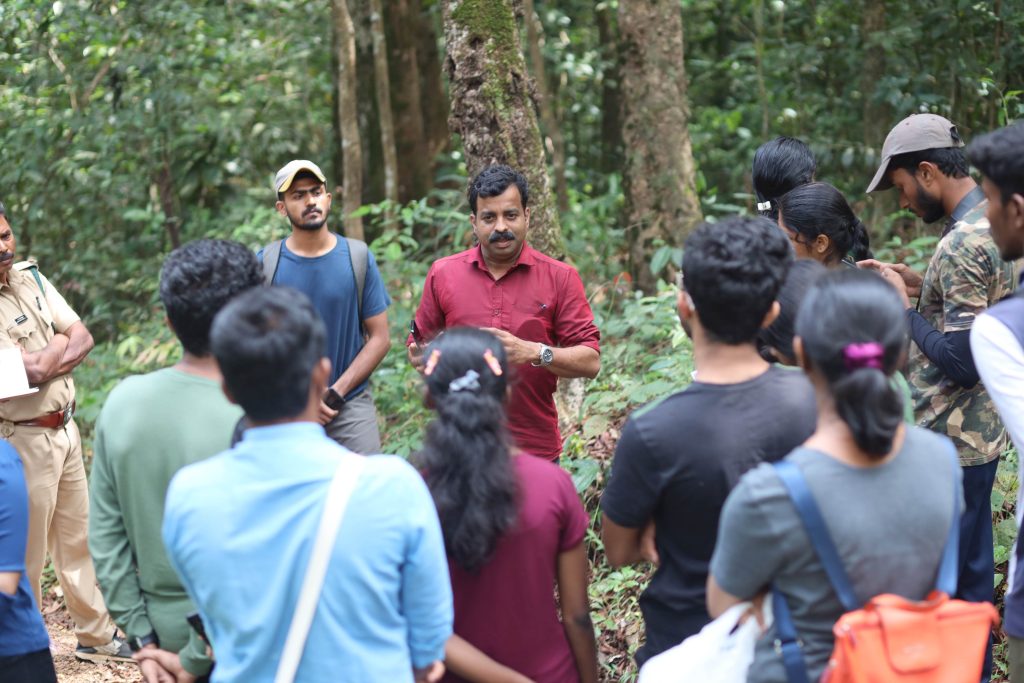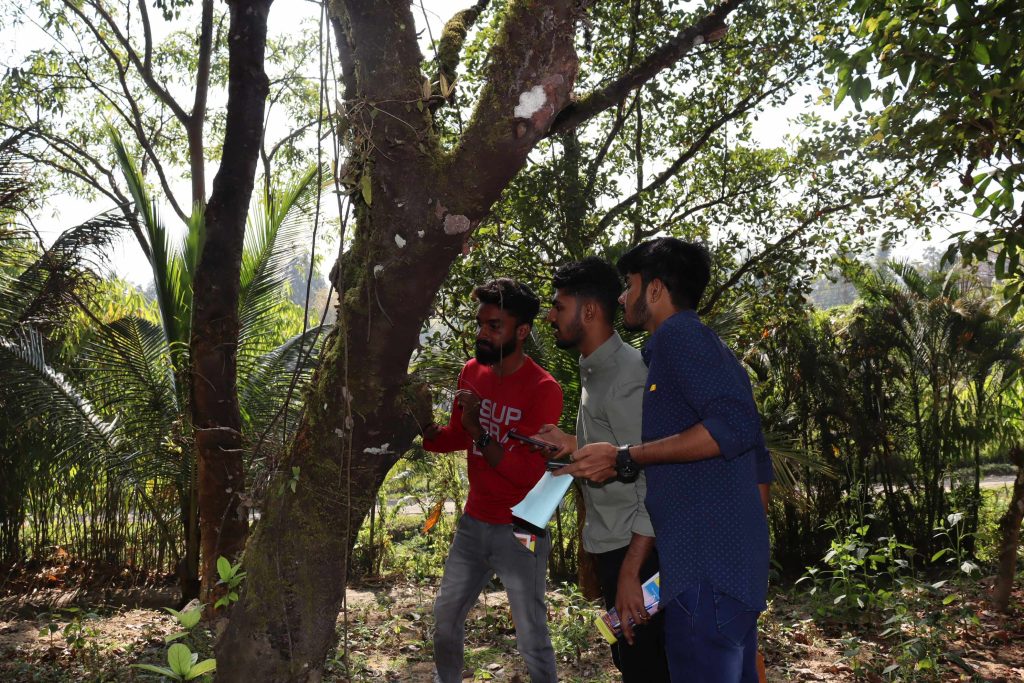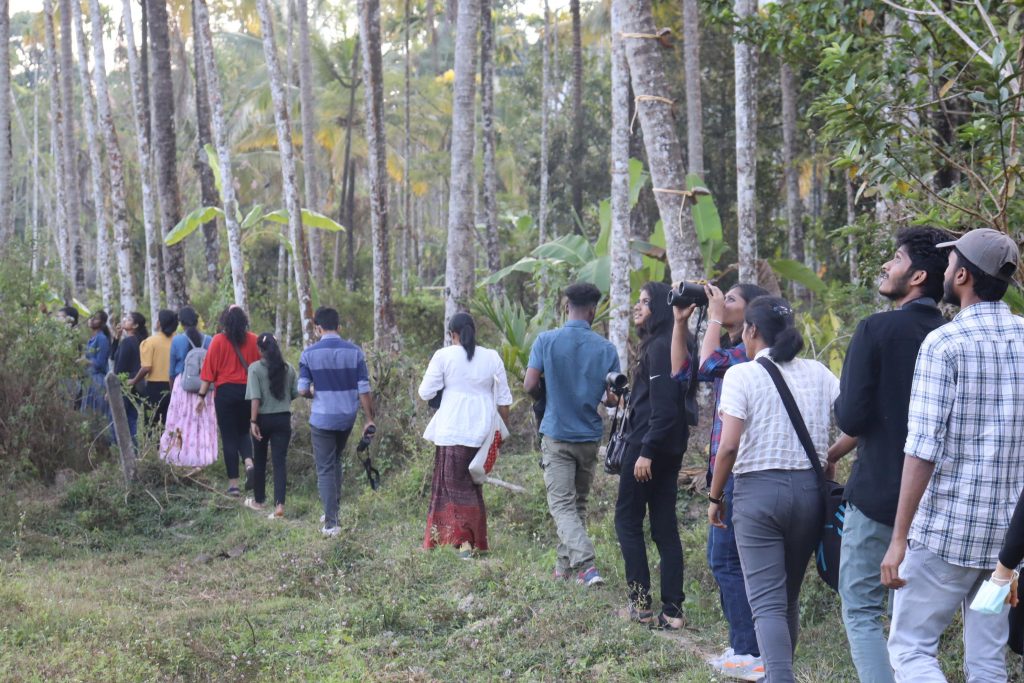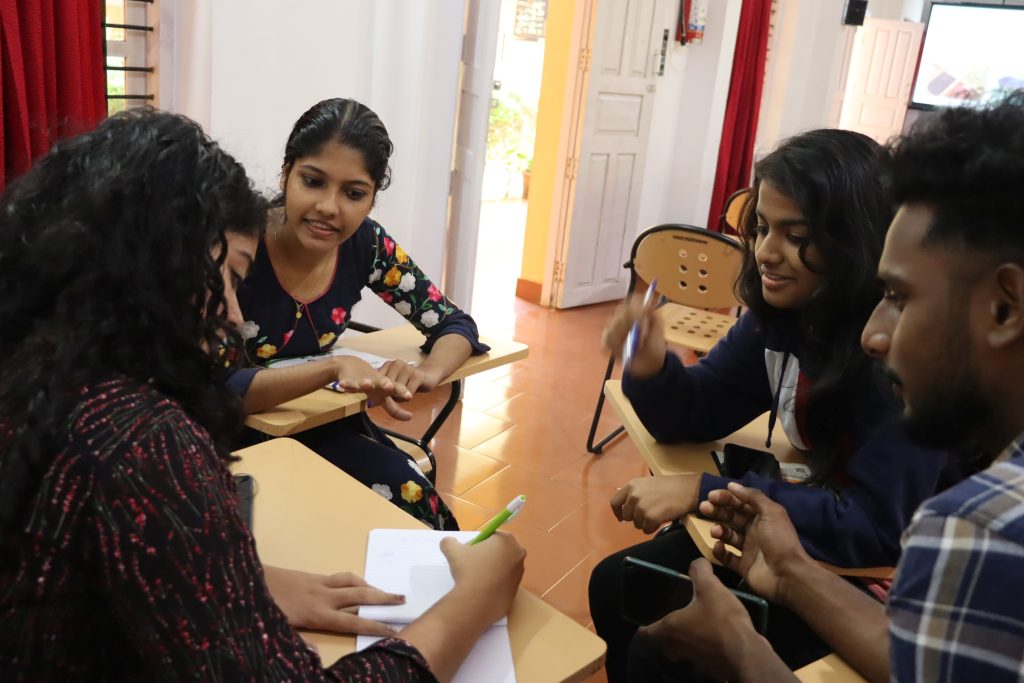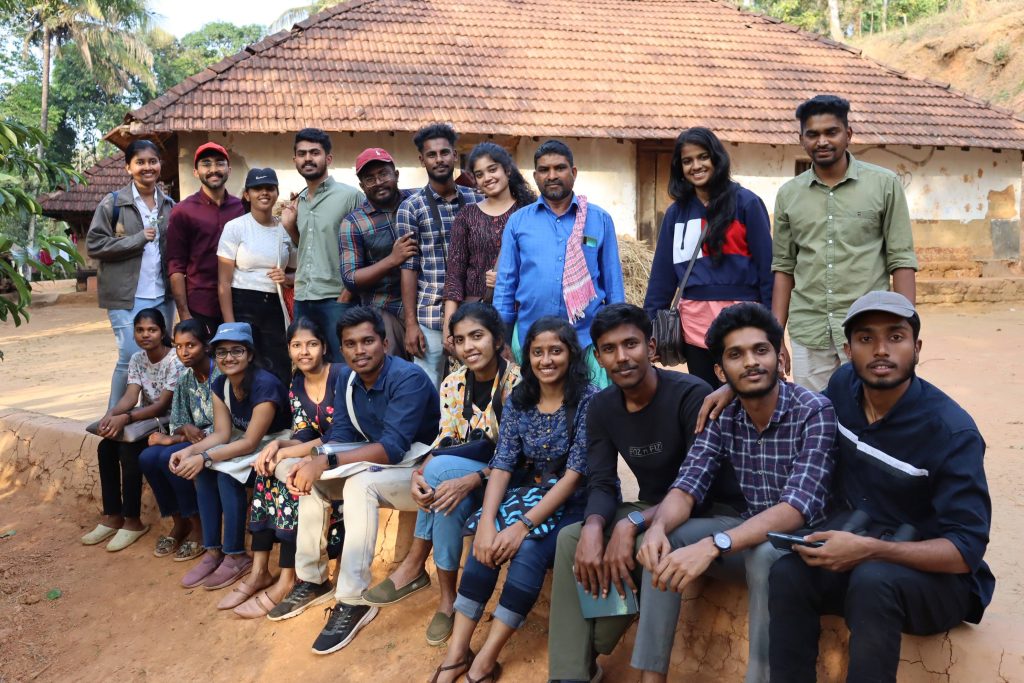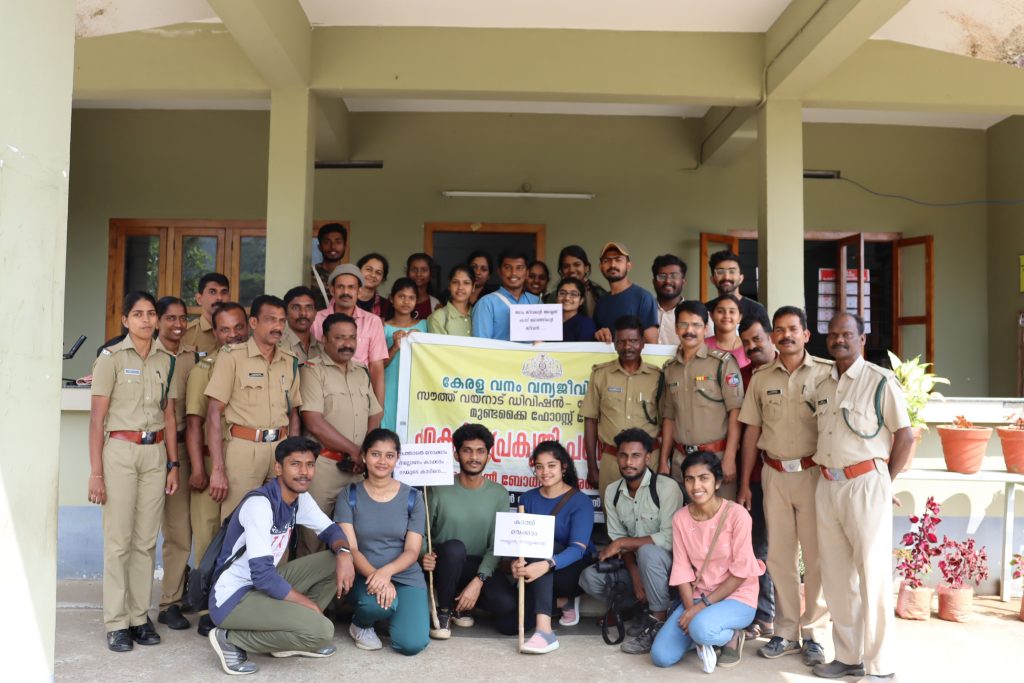One Week Short Course on Biodiversity
17-01-2023 to 24-01-2023
Community Agrobiodiversity Centre (CAbC), M S Swaminathan Research Foundation, Wayanad with the support of Kerala State Council for Science & Technology organized a ‘One Week Short Course on Biodiversity’ for graduate students held from 17-24 January 2023. All 21 participants showcased a diverse and heterogeneous group representing various districts of Kerala and also TamilNadu with various disciplines. Dr. Archana Bhatt welcomed the participants and briefed about the programme and learned their expectations from the short course. Dr. Shakeela V., Director, MSSRF CAbC inaugurated the session and welcomed the participants. An icebreaking session was organized in the morning for rapport building and better communication among the participants.
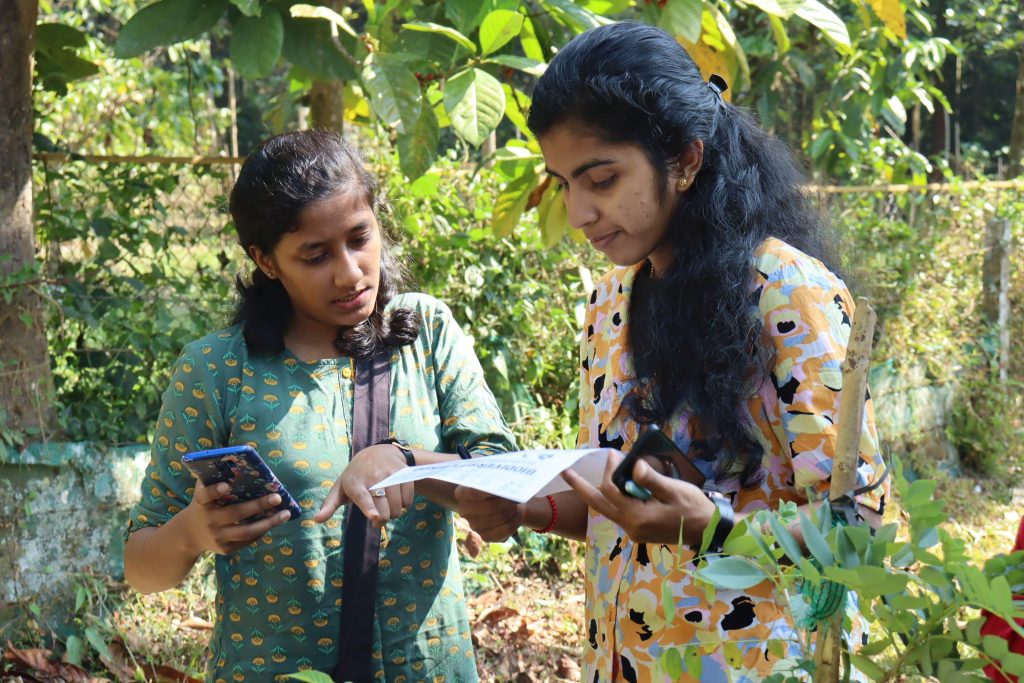
The aim of the programme was to bring together a diverse group of graduates to provide them a knowledge base on biodiversity and at the same time aware them on the importance of biodiversity conservation
Dr. Sujana KA, Scientist(E) & Joint Director, Botanical Survey of India Southern Region held a session showcasing the vast floral diversity of the Western Ghats through an informative and interesting presentation highlighting her extensive field experience. She also covered a session on basic plant taxonomy and presented further through a walk in the garden.
An interesting nature scavenging hunt called ‘biodiversity bingo’ was organized in the morning to witness the vast biodiversity in the campus. Students enjoyed and learnt a lot through the exercise and captured the diversity beautifully in their cameras. Later, Mr. Sivan VV, Senior Scientist, MSSRF CAbC took an informative session on ‘Significance and Conservation Concerns in Biodiversity’. The evening was completed with a guided walk in MSSBG with Salim Pichan wherein he shared his knowledge on various plant species in the garden.
Next day started with an enlightening session by Dr. CP Shaji, Fish taxonomist & Conservation Biologist on the Fisheries Diversity in Western Ghats including endemic species. He presented an informative & insightful talk with real-life experiences in fisheries conservation & action. Next session was delivered by Dr. Anil Zachariah, Amphibian Researcher & Veterinary Surgeon. He shared upon the amphibian diversity and his explorations & experiences in the field of amphibians.
The afternoon session was taken up by Dr SM Shamsudeen, Assoc. Prof., Kannur University wherein he discussed about the Insect Diversity of Western Ghats covering various insect families. He also shared live specimens of some of the new records on insects from Coleoptera family.
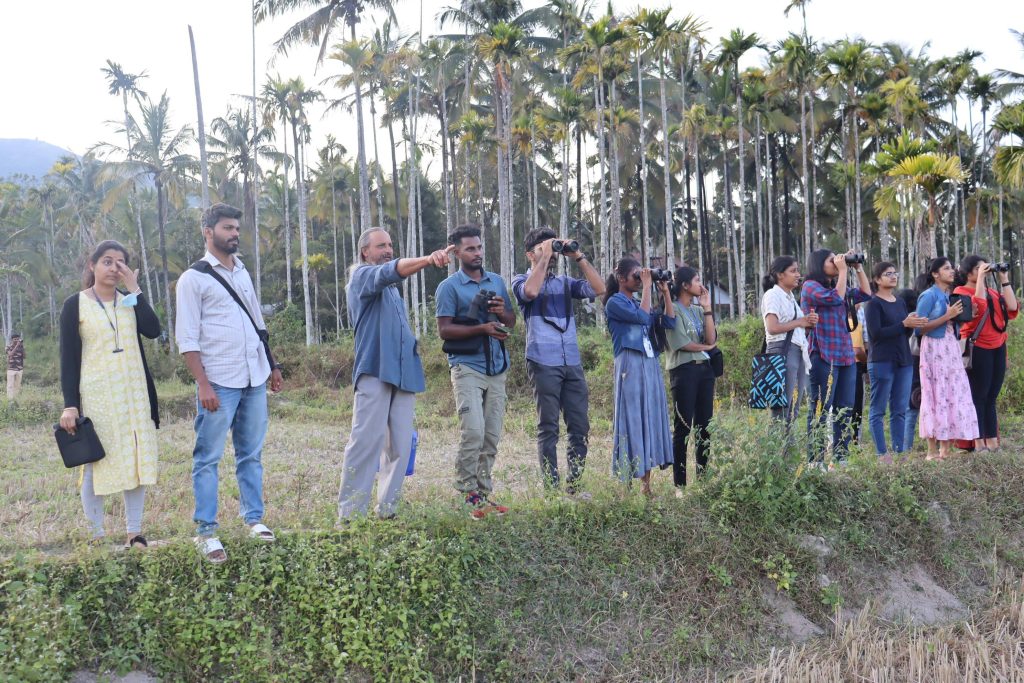
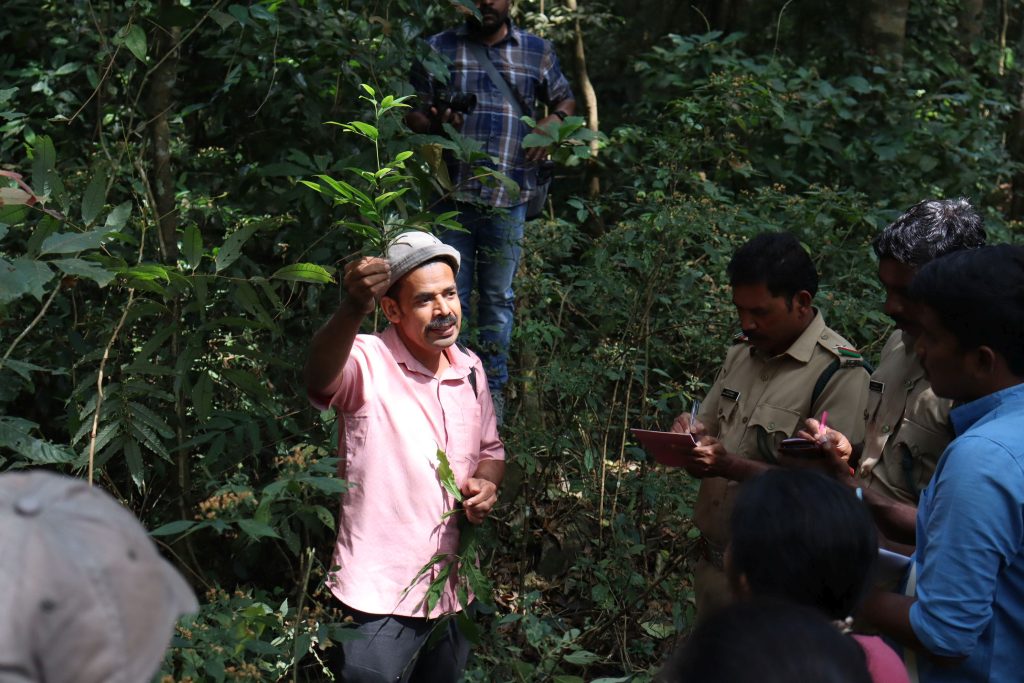
A bird watching session was arranged for the participants in the evening. Mr. Krishnan conducted the activity and facilitated the identification of various bird species and shared details on various bird habits in his agro-biodiversity rich farm. Besides, he also shared his amazing photographs of different species of birds captured on his camera.
Next morning focused on the biodiversity associated with agriculture sector wherein Dr. Archana Bhatt, Scientist, MSSRF CAbC delivered a talk on agrobiodiversity and its importance. The session was followed by Asiya, MSSRF CAbC on the microbial diversity including a practical session focused on various microorganisms. The afternoon followed by a talk by Dhanya CS, Scientist, MSSRF CAbC wherein she threw light on the Red Listing especially the Rare Endemic & Threatened species and the need for conservation. The next session started with a short biodiversity quiz by Dr. Archana Bhatt followed with an insightful talk on Climate Change & Biodiversity. The session dealt with the concept of climate change, its status, causes and adaptation & mitigation options.
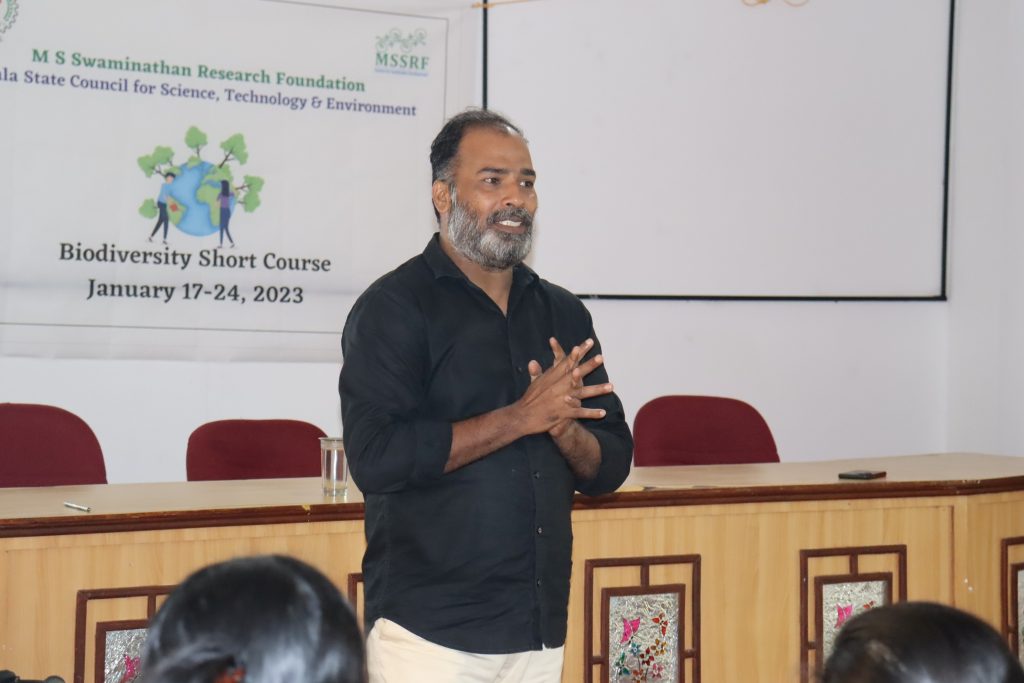
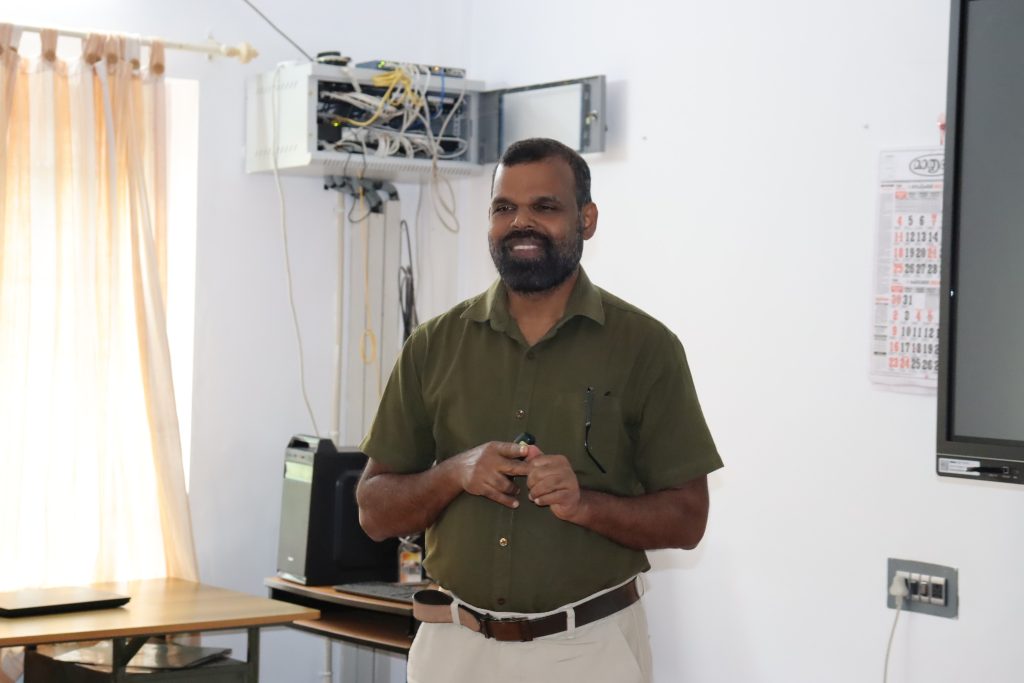
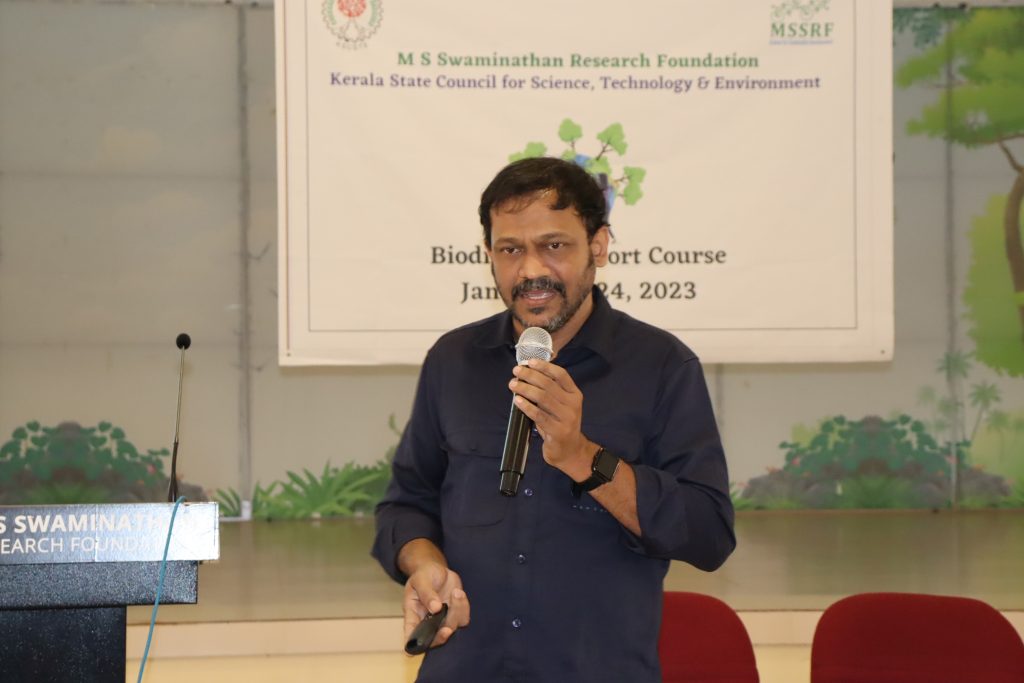
The following day focused on Biodiversity Conservation principles & practices. Mr. Girigan Gopi, Senior Development Coordinator emphasized on the dire need of biodiversity conservation and the methods, tools and practices involved with discussion on In-situ & Ex-situ Conservation. He also discussed upon the traditional biodiversity and the cultural importance attached with biodiversity conservation.
In the afternoon, a field visit was arranged to an agrobiodiversity-rich hamlet of one of the tribal communities of Wayanad, Kurichiya. Vipindas P, Development Coordinator, MSSRF CAbC facilitated the session especially focusing on the community based conservation mechanisms and experiences from the centre. The participants were exposed to the rich farm diversity and the cultural association with conservation through the visit.
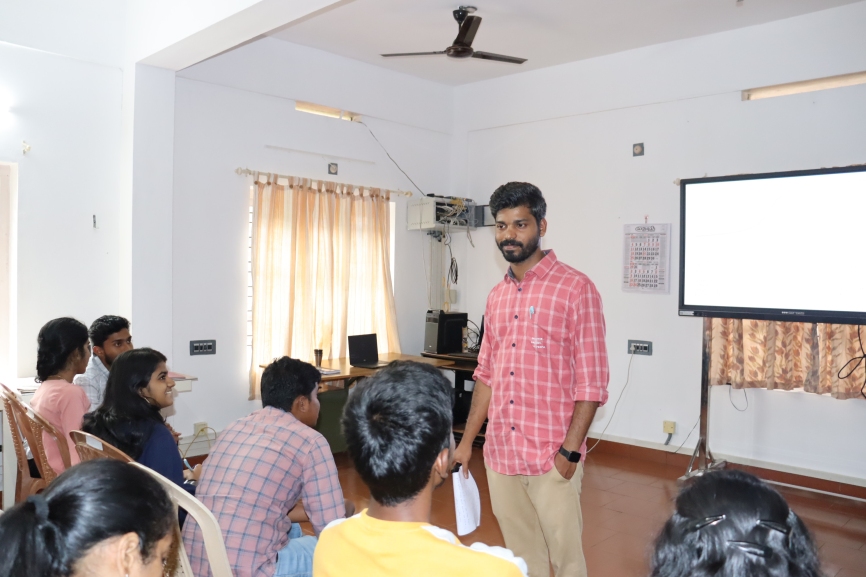
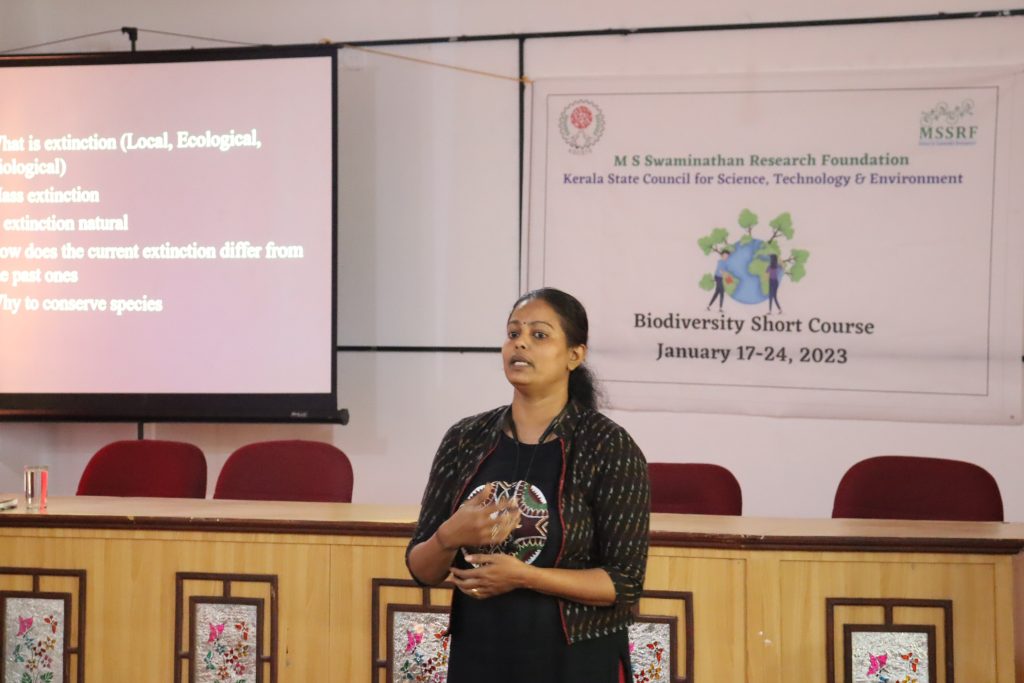
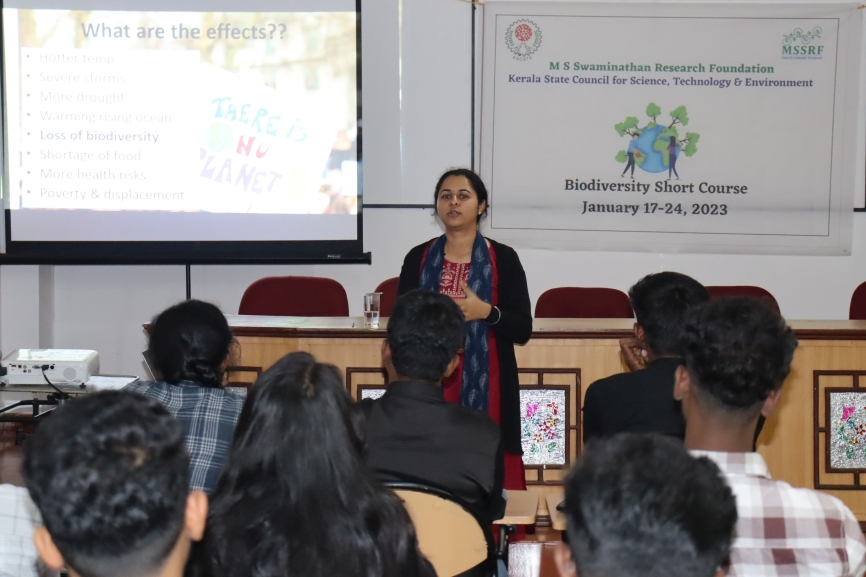
With the second last day of the short course, an entire day was dedicated to forest visit to give the participants an exposure to the biodiversity of the forest area. Before the visit, a brief event was arranged with the Forest Department. Sundaran KK, Deputy Range Forest Officer took an awareness session on the forest conservation and the challenges with forest fire. After the session, Students along with Jithin MM, Salim, Dr. Archana Bhatt, Habeeb A. and two forest personnel explored two forest sites in the Meppadi Forest Range. The tour was well enjoyed by the team and they were willing to join such excursion programmes in future as well.
On the very last day, Prajeesh P., Senior Scientist focused on the institutional mechanisms in biodiversity conservation focusing on various laws, institutions, organisations and committees working in the field of biodiversity conservation. The next session linked with the topic was taken up by Mr. Sivan VV on the need & importance of People Biodiversity Registers and the practical aspects of preparations of PBRs. The last informative session was focused on the Economics & sustainable use of biodiversity by Sanil PC, MSSRF CAbC wherein he focused on the importance of data concerned with biodiversity degradation & conservation.
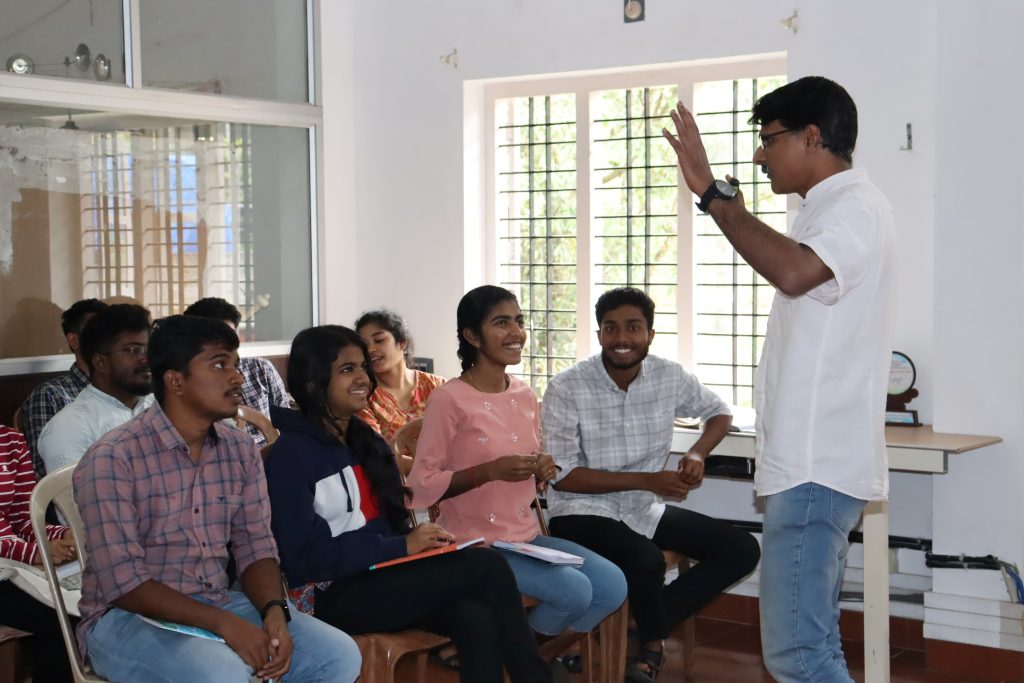
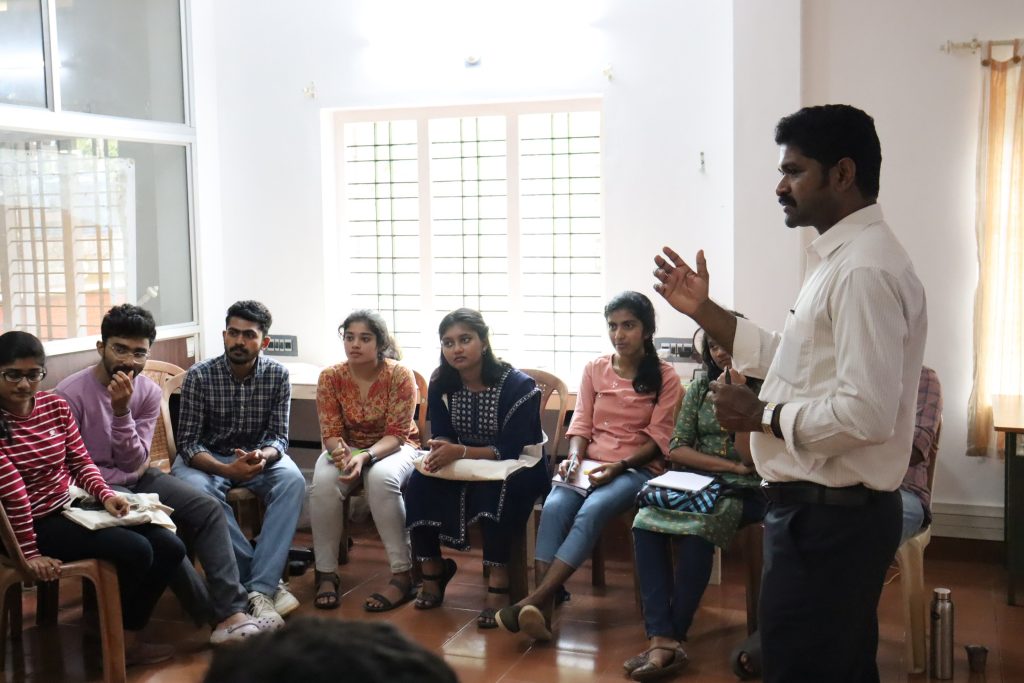
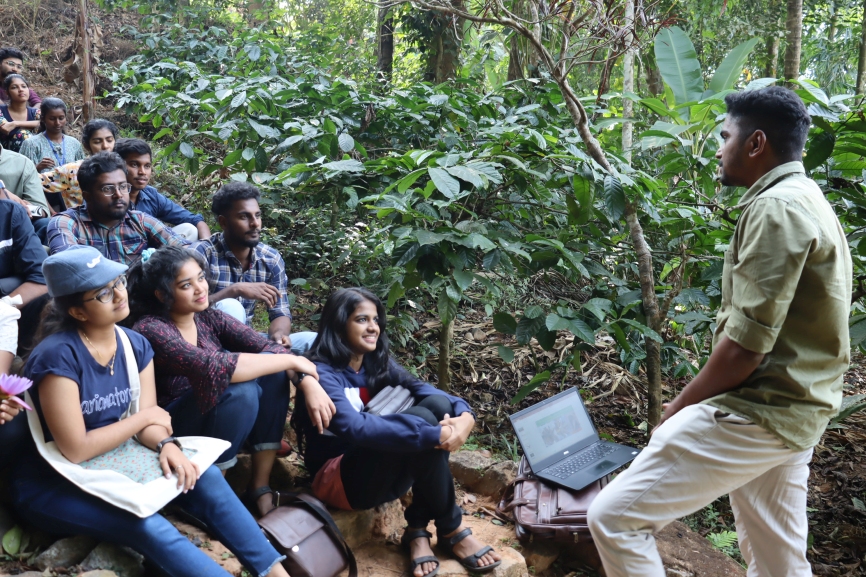
Towards the end, a debate cum discussion was held among the participants on one of the recent issue concerned with Eco-Sensitive Zones Demarcation in Kerala moderated by Joseph John, Scientist, MSSRF CAbC. Afterwards, a feedback session was also conducted to know the overall outcome of the programme. Participants from various domains gave a very positive response towards the short course and suggested to increase the tenure of the course and more field visits. The attendees reflected that they need more such courses in future and also some specialized courses in taxonomy, microbiology and biotechnology as well and they attained newer insights on biodiversity conservation. Certificates for participation were also provided to the attendees followed by a vote of thanks. The participants especially acknowledged the support of training coordinators and the entire staff of the centre in the successful conduction of the programme.

